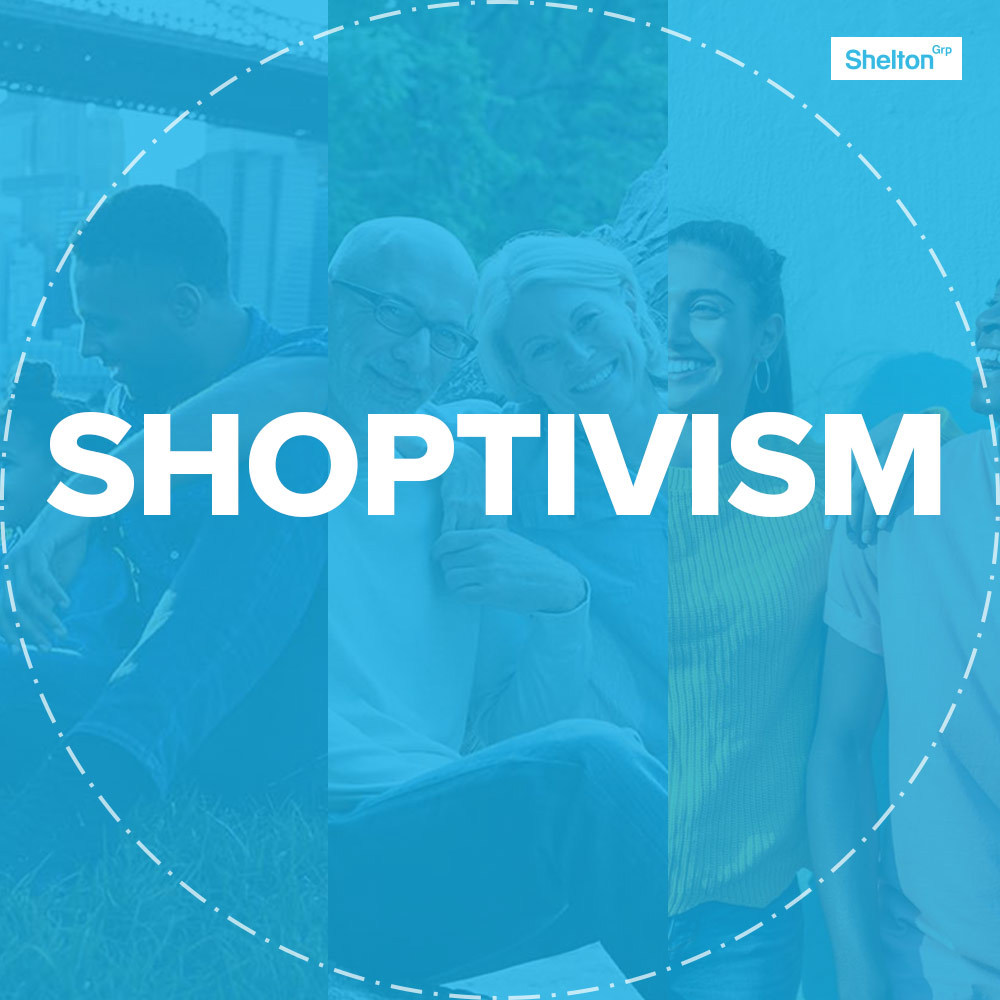Why one of the Supreme Court’s decisions isn’t as bad as it seems
Shelton Stat of the Week
62% of Americans say that a company’s environmental reputation has a moderate to very strong impact on their purchase intent (up slightly from 59% in May 2020).
—Eco Pulse®, December 2020
A lot of folks in my circles have been devastated by so many of the Supreme Court’s recent decisions – myself included – but there’s one I’m less worried about: the decision limiting the EPA’s ability to regulate emissions from power plants.
My aim in this post is to give you hope, and also to point out one more way in which business plays a lead role in climate action.
Here’s Shelton Group’s POV:
- Up until a few years ago, coal-fired power plants were the leading cause of climate change. Starting in the early 2000s, use of coal as a fuel source for electricity generation began to decline and, according to the U.S. Energy Information Administration, in 2021 we used the least amount of coal in this country since 1964. Much of that decline can be chalked up to cost: it became cheaper to burn natural gas than coal to make electricity, and as utilities were faced with updating and/or building new power plants over the last 20 years, they’ve chosen natural gas largely for financial reasons.
- Now, natural gas is still a fossil fuel and burning fossil fuels is, of course, what has gotten us into the climate crisis (and keeps us in it). So, indeed a combination of regulation and innovation would be incredibly helpful for ultimately slashing the electric utility industry’s emissions to zero.
- And that’s where business comes in. And it’s where the SEC comes in as a de facto regulator. For 16 years now, Shelton Group’s sustainability marketing insights have revealed that Americans want and expect companies to play a leading role in solving the climate crisis. And as I wrote about two weeks ago, in 2019, Wall Street got the memo that there is no business case for a two degree increase in global temperatures, and investors started asking publicly held companies lots of pointed questions about environmental impacts. Those questions accelerated the amount of attention executive teams were paying to climate and helped them move faster to commit to carbon neutral goals.
- Earlier this year, the SEC proposed rules that, if adopted, would require publicly held companies to do three things: disclose climate related risks, report Scope 1, 2 and 3 GHG emissions and reveal targets and plans for reducing environmental impact (read about the rule here and take a look at this McKinsey piece summarizing the implications). Scope 2 emissions are indeed the emissions that come from purchased electricity. So as publicly held companies work to reduce or eliminate their Scope 2 emissions, they will be putting enormous pressure on their electric utilities to get to carbon neutrality fast. I can actually see this being a powerful economic development tool – if you were the CEO of a publicly held company and you could locate your next facility to a part of the country served by a utility with zero carbon emissions, you would do it because your own emissions scorecard would look instantly better, thereby making your company more attractive to investors. You’d also stay away from the cities and states served by utilities with high GHG emissions for the same reason.
- Further, about 72% of our nation’s electricity comes from investor owned (publicly traded) utilities. So that means, under the proposed SEC rule, utilities themselves would have to disclose their emissions across the board, including their Scope 3 emissions, which come from their supply chain. That will be a heavy motivator to seek out the fuel sources that are most climate friendly.
Given that the list of worries is so large, the Supreme Court’s EPA ruling is one that doesn’t need to be at the top. Utilities want to remain viable, and they’ll work swiftly to get their GHG houses in order for their own ESG ratings and to comply with the demands of their largest customers. As this all shakes out, there will be many good stories to tell here – stories of collaboration and stories of companies working together to do things that ten years ago seemed impossible. Those stories need to be told – to drive brand preference AND to give everyone something to believe in.

— InformationWeek
With the EPA losing power, it’s up to businesses to step up. This InformationWeek article details the fallout from the Supreme Court’s recent decision to diminish the regulatory powers of the EPA.

The Supreme Court’s EPA ruling was the beginning of something bigger
— The Washington Post
After a series of controversial Supreme Court decisions, the country is wondering what’s next. This Washington Post piece highlights the potential next legal targets on climate change, including the recent SEC proposal requiring emissions disclosures.
Shoptivism: Why Consumers (& Job Seekers) Opt In & Out of Today’s Brands
Sustainability is now mainstream and it’s affecting purchase behavior.
Every year we ask Americans if they’ve ever intentionally purchased or not purchased a product or service based on the social or environmental record of the manufacturer. We then ask everyone who says “yes” to name the brand. Those who say “yes” and can give an example of a brand unaided? We call them shoptivists.
But who are these “shoptivists?”
Our latest report answers this question with three distinct consumer profiles, including details on their mental models, their shopping patterns, the messages that resonate, and where to find them.


-
TAGS:Corporate Sustainability, Efficiency & Conservation, Energy & Renewables, Environmental Issues